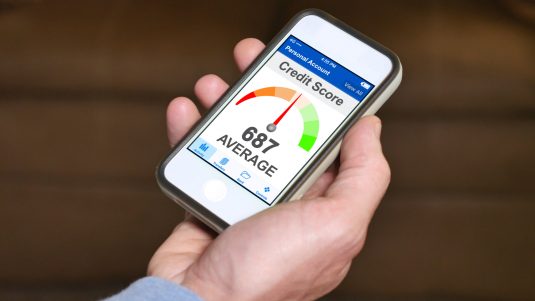How Is Your Credit Score Determined?

If you’re in a lot of credit card debt, you may be focusing on what your first step might be to pay off your debt. What should you do now? But once you’ve decided on the right debt relief option for you, what comes next?
One of your next steps should be to focus on your credit score (along with creating and sticking to a budget, of course). While this 3-digit number doesn’t define you, it can impact your financial future in some profound ways.
Credit scores are used by lenders, landlords, employers, and others to determine the likelihood that you can repay loans or pay your bills on time. It’s a measure of your financial stability over time – and, in some cases, is used to gauge your general level of responsibility.
A subpar credit score can exclude you from low-interest rate loans and mortgages and better car insurance rates, meaning you will pay more in the long run than those with higher credit scores. Even employers are allowed to check your credit score, in accordance with certain laws, when making hiring decisions. While home ownership may not be for you, low scores can affect where you live, as landlords may also check your credit history to see if you’re likely to pay your rent on time.
This system seems to punish low income individuals and those who are in dire financial straits; however, there is still hope for those with poor credit scores to smooth out their credit history.
Learning how to fix your credit score begins with understanding what affects your credit score. Though this number can seem a bit arbitrary, credit reporting agencies – the big three of which are Equifax, Experian, and TransUnion – use similar formulas to arrive at a number between 300 to 850.
Though there might be slight differences in the weight each factor is given, here’s a breakdown of how the major credit reporting agencies generally calculate your credit score:
- Payment History has the greatest impact on your credit score, determining 35 percent. This portion of the formula considers if you’ve consistently paid your bills on time, how late (30, 60, or 90 plus days) you were on past due bills, and whether you have legal actions pending, discharged debt, or are or have gone through some form of debt relief program, such as debt settlement or bankruptcy.
- Amounts owed account for 30 percent of your score. The less you owe on certain accounts, such as credit cards, mortgages, and auto loans, the better. Agencies also factor in the combination of account types – a diversified mix is best.
- Length of credit history is used to calculate 15 percent of your score. Agencies will look at the age of your oldest account and the average age of all your accounts.
- New lines of credit account for 10 percent of your score. Applying for numerous lines of credit at once may send a red flag to creditors, signaling you’ll be taking on a lot of debt or are short on cash. Even if you’re not applying for a ton of credit cards, the date of your last opened account is still considered.
- Types of credit in use determine 10 percent of your credit score. How many lines of credit do you have open? What types of credit accounts are open, e.g. mortgages, credit cards, store accounts, and installment loans.
There’s no need to fret if your credit score is in rough shape. There are many ways to boost your score – just remember that it takes time. And even though some bad marks stay on your report for seven years or more, the weight these factors are given diminish overtime. Fixing your credit is just a matter of making smart financial decisions.
New Era Debt Solutions specializes in debt settlement or debt negotiations. Since 1999, we have helped our clients settle over $200 million in debt. If you’d like to see if debt settlement is the right first step for you, please contact us or fill out our form on this page for your free debt analysis.
